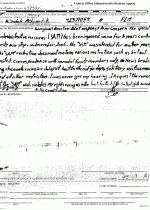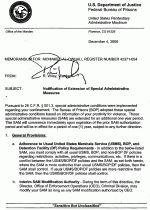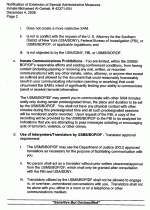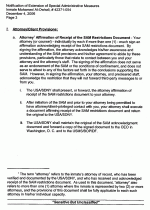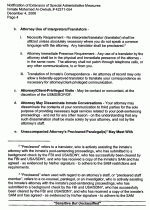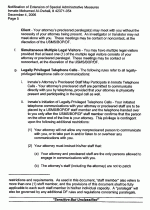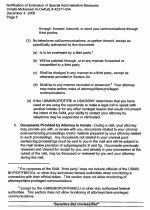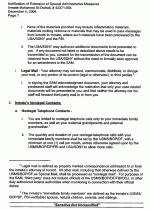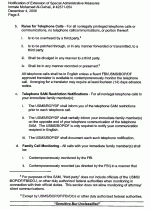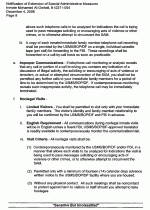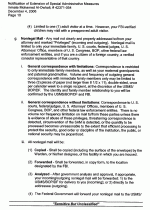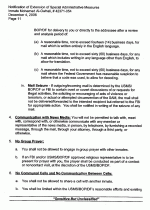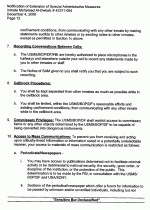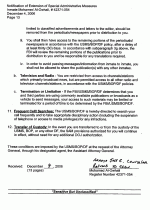Jailed Terrorist: "I Want My Walkman"
Convicted al-Qaeda murderer complains about life in federal prison

View Document
Jailed Terrorist: "I Want My Walkman"
-
Jailed Terrorist: "I Want My Walkman"
-
Jailed Terrorist: "I Want My Walkman"
-
Jailed Terrorist: "I Want My Walkman"
-
Jailed Terrorist: "I Want My Walkman"
-
Jailed Terrorist: "I Want My Walkman"
-
Jailed Terrorist: "I Want My Walkman"
-
Jailed Terrorist: "I Want My Walkman"
-
Jailed Terrorist: "I Want My Walkman"
-
Jailed Terrorist: "I Want My Walkman"
-
Jailed Terrorist: "I Want My Walkman"
-
Jailed Terrorist: "I Want My Walkman"
-
Jailed Terrorist: "I Want My Walkman"
-
Jailed Terrorist: "I Want My Walkman"
-
Jailed Terrorist: "I Want My Walkman"
NOVEMBER 6--An al-Qaeda operative serving life in prison for his role in the bombing of American embassies in Africa contends that his rights are being violated by U.S. jailers who have denied him access to Arabic publications and religious books, limited his mail privileges, and no longer allow him to use a Walkman.
Mohamed Al-Owhali, 30, claims that his incarceration at the 'supermax' federal prison in Florence, Colorado has left him so severely depressed that he stopped eating for months, forcing Bureau of Prisons officials to feed him via a tube placed through his nose. In a new U.S. District Court lawsuit, Al-Owhali wants a judge to order prison brass to provide him with expedited mail services, expanded phone privileges, and access to radio and TV news broadcasts and English and Arabic newspapers and magazines.
Currently, Al-Owhali claims, he is only provided with month-old copies of USA Today, 'with several pages-sections removed.' The convicted terrorist is held in virtual isolation in a special security unit at Florence, per Department of Justice guidelines known as Special Administrative Measures. Attached to Al-Owhali's handwritten October 19 lawsuit is a copy of an internal BoP complaint form filed by the inmate (a copy of which you'll find here) and a BoP memo to Al-Owhali detailing the SAM measures governing his incarceration.
The Osama bin Laden disciple and three codefendants were convicted in 2001 for their roles in simultaneous car bomb attacks at U.S. embassies in Nairobi and Tanzania. Those blasts killed a total of 224 people and injured thousands of other victims. (14 pages)

